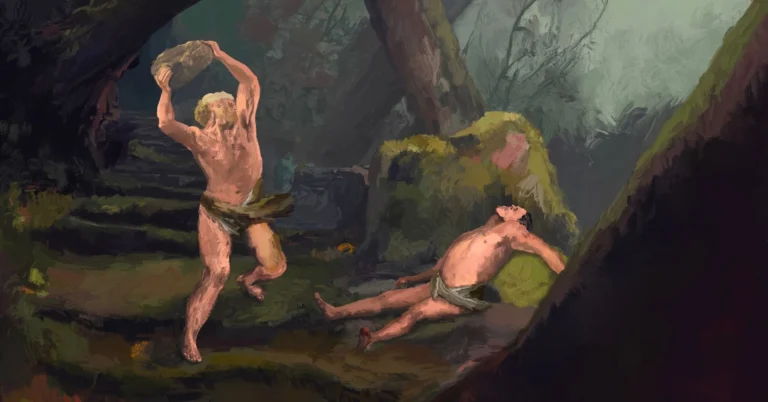Renaissance literature refers to works written in Europe during the Renaissance period. The Renaissance period was a time of cultural, artistic, and intellectual revival that began in Italy in the 1300s and spread across Europe over the next few centuries.
Writings in this period reflected both a renewed interest in the classical ideas of ancient Greece and Rome and the development of new thought, technologies, and literary forms.
Key Themes in Renaissance Literature
Renaissance literature marked a shift from strictly religious texts to works that explored human experience and individuality. Two key philosophical ideas often found in these texts were:
- Humanism: A focus on human potential, critical thinking, and finding meaning in life.
- The Great Chain of Being: A belief that everything in the universe had its place in an ordered hierarchy.
Writers also revived classical genres like epic poetry, theater, satire, and philosophical dialogue. These works were used to explore politics, society, and human nature.
How the Printing Press Transformed Renaissance Literature
One of the most important developments in this era was the invention of the printing press by Johann Gutenberg around 1439. Before this, books were copied by hand. This was usually done in Latin by monks. At this time, these books were only available to clergy or the elite.
The printing press changed everything:
- Books could be produced faster and cheaper
- Authors could write in the vernacular (local language)
- Literature became more accessible to everyday people
This shift also supported major cultural movements like the Protestant Reformation, which challenged the authority of the Catholic Church and encouraged religious texts and ideas to be shared widely.
Notable Authors of the Renaissance
Some of the most influential writers of the Renaissance include:
- William Shakespeare (England): Playwright and poet known for his tragedies, comedies, and sonnets
- Dante Alighieri (Italy): Author of The Divine Comedy, a combination of classical and Christian themes
- Niccolò Machiavelli (Italy): Political thinker best known for The Prince
Why Renaissance Literature Matters
Renaissance literature wasn’t just a return to ancient ideas—it helped shape modern thought. It introduced critical thinking, secular subjects (topics beyond religion), and new literary styles, laying the foundation for modern literature, education, and culture.
Our Editorial Team, with a rich background in educational content creation, prioritizes accuracy and quality in every article. We are committed to producing expert content tailored to meet the academic needs of college and high school students, ensuring they receive well-researched and trustworthy information for their educational journey.







